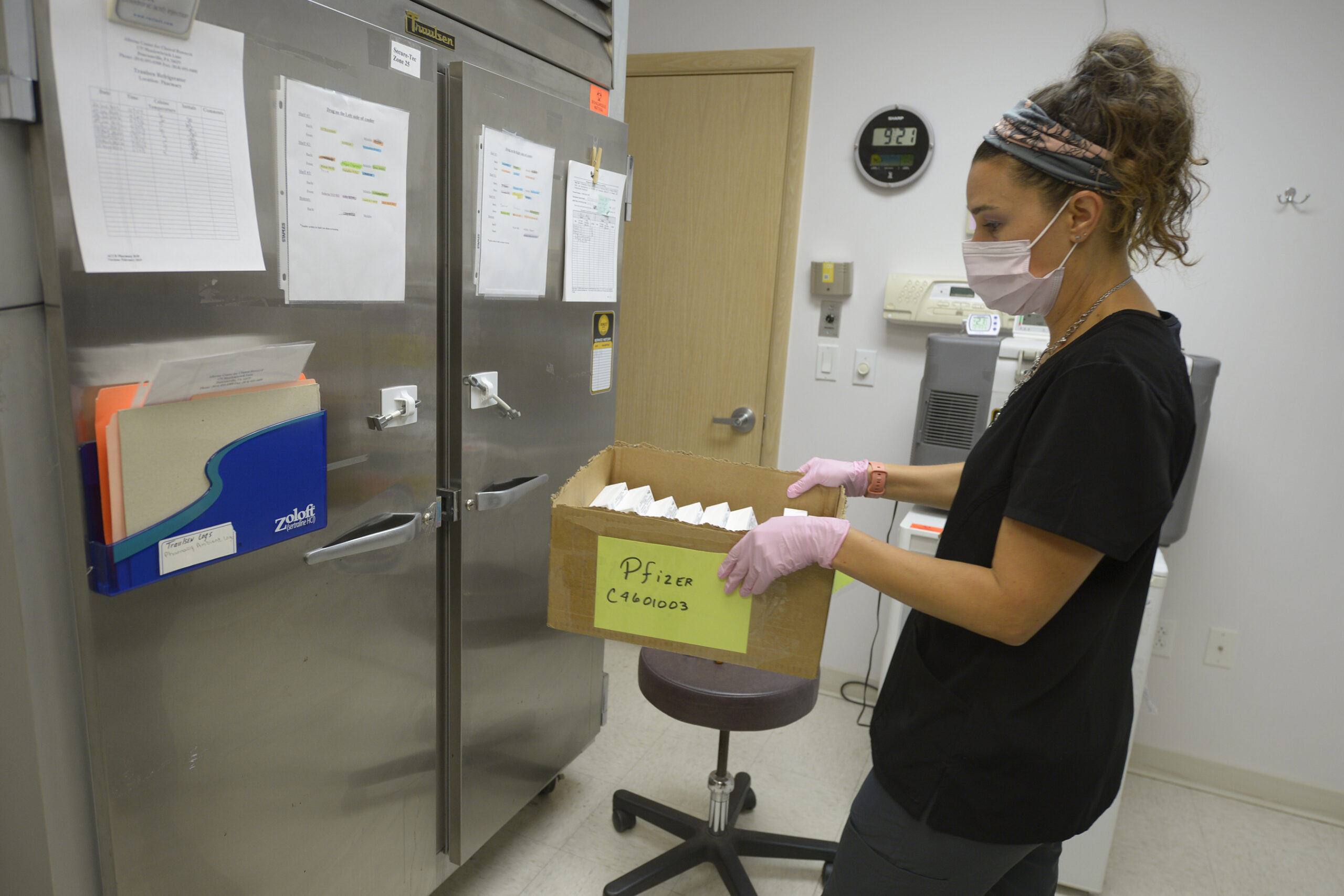
A registered nurse at the Altoona Center for Clinical Research in Duncansville, PA begins the process of preparing refrigerated doses of Pfizer's Lyme disease vaccine (Gary M. Baranec/AP Images)
Pfizer cuts CRO unicorn from Lyme vaccine trial in dispute over conduct
Pfizer is ending its work with research contractor Care Access on an 18,000-patient Lyme disease vaccine trial, according to an internal email reviewed by …
Sign up to read this article for free.
Get free access to a limited number of articles, plus choose newsletters to get straight to your inbox.